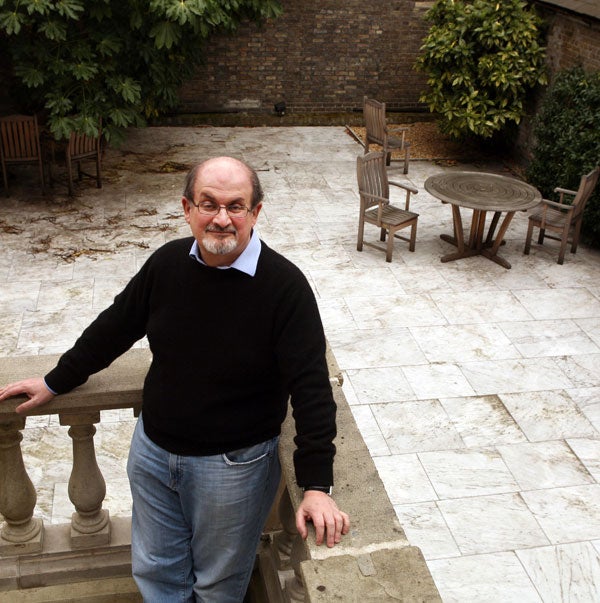Luka and the Fire Of Life, By Salman Rushdie

Even the most grown-up writers like to do a book every now and then for their children. Ian Fleming wrote Chitty Chitty Bang Bang for his son, Caspar. Geoffrey Chaucer gave Litel Lewis Chaucer A Treatise on the Astrolabe for his birthday ("Thanks, Dad. I hardly dared hope"). If you think Litel Lewis got a raw deal, wait until you read Milan Rushdie's present: Luka and the Fire of Life.
Luka is the sequel to Haroun and the Sea of Stories, a book that told the tale of a storyteller – Rashid – who has lost contact with the "Sea of Stories". Rashid's son Haroun literally reconnects his father to his source of inspiration. This would have been a moving story at any time, but for Rushdie to have produced such a joyous defence of free speech in the context of the fatwa was heroic and inspiring. Haroun is not just one of Rushdie's best books; it's one of the best books ever.
Luka is Haroun's younger brother, an enthusiastic gamer who crosses over from reality into the magic world of the Sea of Stories, where he encounters a ghostly version of his own father. Luka realises that this World is a vast multi-level computer game. He realises too that the ghost-father is an avatar of his real father and that the more life the avatar gains, the more lifeless his real father becomes.
A story that works like a game is a great idea. It certainly works in Lewis Carroll's Through the Looking Glass. It doesn't work here. Rushdie doesn't embrace any of the real pleasures of computer games – the frustration of being sent back to the beginning, the moment of revelation when you reach a new level. Nor does he address any of the dangers – the fact that the main character is essentially passive and that, because he has lots of spare lives, there is no real jeopardy. Some people have praised this book for its "brilliant wordplay" and wit. The only honest thing I can do is share a few examples so you can decide for yourself. Discussing how rat communities govern themselves, Luka asks "Who choses the Over-Rat?" He chooses himself. "It's known as being Over-Rat-ed." Luka's Mother's dislike of games consoles makes her "in-console-able". Maybe this is brilliant wordplay; maybe it's like being pelted with Haribo.
Whether you're impressed or not, it means the book has a surface kiddiness while its content seems to be aimed at older readers. This is very disorientating: like watching a version of The Matrix narrated by Basil Brush.
Haroun was a brilliant defence of the freedom to imagine. Luka is a story about storytelling. This is an infallible sign that the writer knows that something isn't working, and in fairness to Rushdie, someone should have told him so. If a chef plonked a bunch of raw leeks and a stock cube on your table and tried to pass it off as a "soup about soup making" would you say, "Hmmm, post-modern, yummy yummy" or would you say, "No, those are ingredients, please go and cook them."
Rushdie is a brilliant maker of word feasts. When he brought the rare and intriguing ingredients of Luka to the publisher, they should have said, "Wonderful. Now go and cook."
Frank Cottrell Boyce's 'Cosmic' is published by Macmillan Children's Books
Subscribe to Independent Premium to bookmark this article
Want to bookmark your favourite articles and stories to read or reference later? Start your Independent Premium subscription today.

Join our commenting forum
Join thought-provoking conversations, follow other Independent readers and see their replies